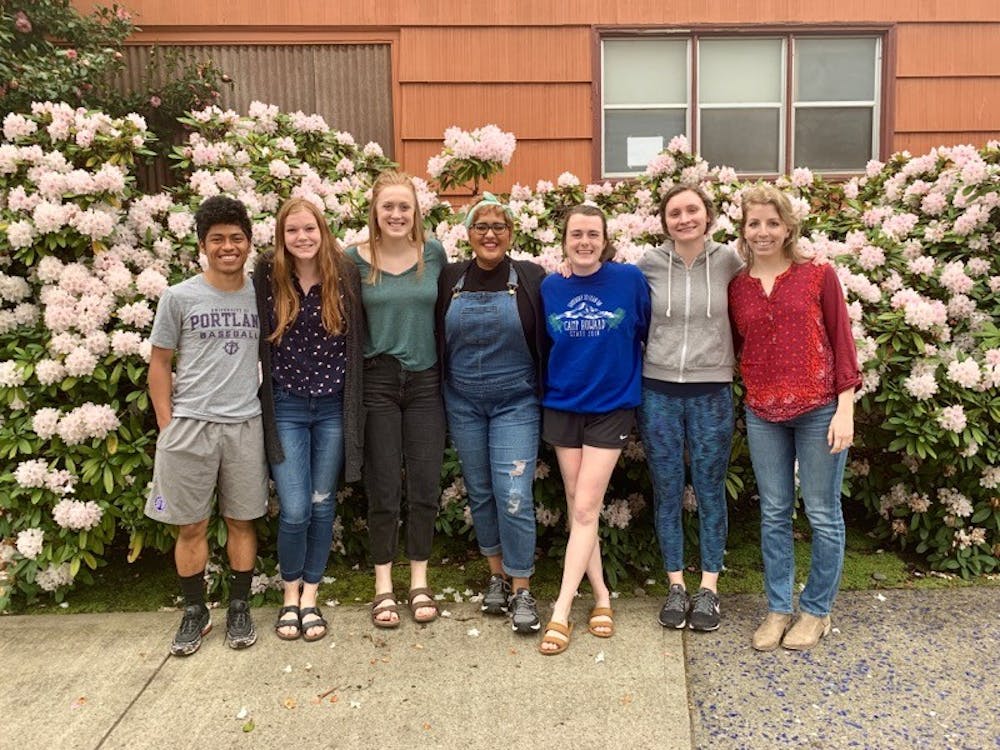Social justice is a phrase that we hear often but rarely understand. To some, it is just an overused buzzword. Others view social justice as a type of movement towards equity, regardless of one’s social identities.
Keeping this in mind, our Social Justice Capstone class set out to understand exactly how members of the University of Portland community define social justice. After interviewing about 80 students, faculty and staff on campus, we noticed that many people were caught off-guard and seemed uncomfortable as they formed their responses. It became clear that within our small college campus, the question, “What does social justice mean?” has no single answer.
Granted, asking someone to define social justice is a lofty request, but as we unpacked the results and reactions, we found a deeper, more pressing issue, the same issue that compelled us to write this article about our campus community: social justice isn’t relevant enough in our daily lives.
Pursuing a minor in social justice hasn’t given us all the answers, but it has helped us articulate what we know social justice isn’t. It isn’t a distant hypothetical concept. It isn’t a buzzword. And it isn’t something that can continue to be irrelevant at UP.
As a university community, we must commit to living in a way that reflects the social justice ideals we claim as our own. In order to put this into practice, we have identified opportunities for everyone to take more concrete action in pursuing a more just campus.
If you are an alumni or donor...
Give money to student organizations and clubs that support underrepresented individuals and groups within the University of Portland community. Consider directing your generosity and attention in a more targeted way, such as supporting the Moreau Center for Service and Justice, First Generation College Students or Diversity and Inclusion Programming. Promote causes that increase opportunities for students to expand our worldview and develop our own social justice lens, which informs how we look at issues of power, privilege and oppression.
If you are a member of the administration...
Empower students and organizations that support and promote various social justice initiatives both on and off campus. A commitment to educating the mind, heart, and hands should include adopting inclusive policies and prioritizing social justice initiatives. Give a diverse group of students, faculty and staff a seat at the table when making decisions that impact the community we are all stakeholders in. If the University is going to continue marketing itself as a social-justice oriented institution, then our development must be geared towards advancing that ideal as well.
If you are a member of the faculty or staff…
Incorporate a social justice lens into your classroom discussions and curriculum. Reach out to students who are struggling to feel heard and included on campus. Get involved with efforts to address injustices regarding diversity and inclusion, financial strain, mental health and other prevalent issues. Begin to think about social justice as something that applies to all students, regardless of major. Classroom conversations about social justice can allow for increased awareness and understanding of how justice and oppression impact all of us in our day-to-day lives.
If you are a University of Portland student…
Show up to events that will open your eyes and expose the injustices taking place not only a world away, but here on campus. Sign up for immersions, volunteer opportunities, and classes that will challenge you to look at the world more critically. Have difficult conversations with your friends, classmates and mentors that focus on issues of equity. Continually educate yourself and challenge your own opinions, beliefs and worldview.
If you are a member of the University of Portland community…
Pay attention to the ways in which your words and actions impact others, both those you can see and those you cannot. Ask questions about who is being included in the conversation and why there is a lack of opportunity for certain populations. Think about how you can do your part to work towards a socially just university environment and, ultimately, society.
The authors are current UP students and can be reached at the following emails; ortizflo20@up.edu, scruggs20@up.edu, gavigan19@up.edu, nath19@up.edu, grahamm19@up.edu, hodge20@up.edu and burks19@up.edu.








